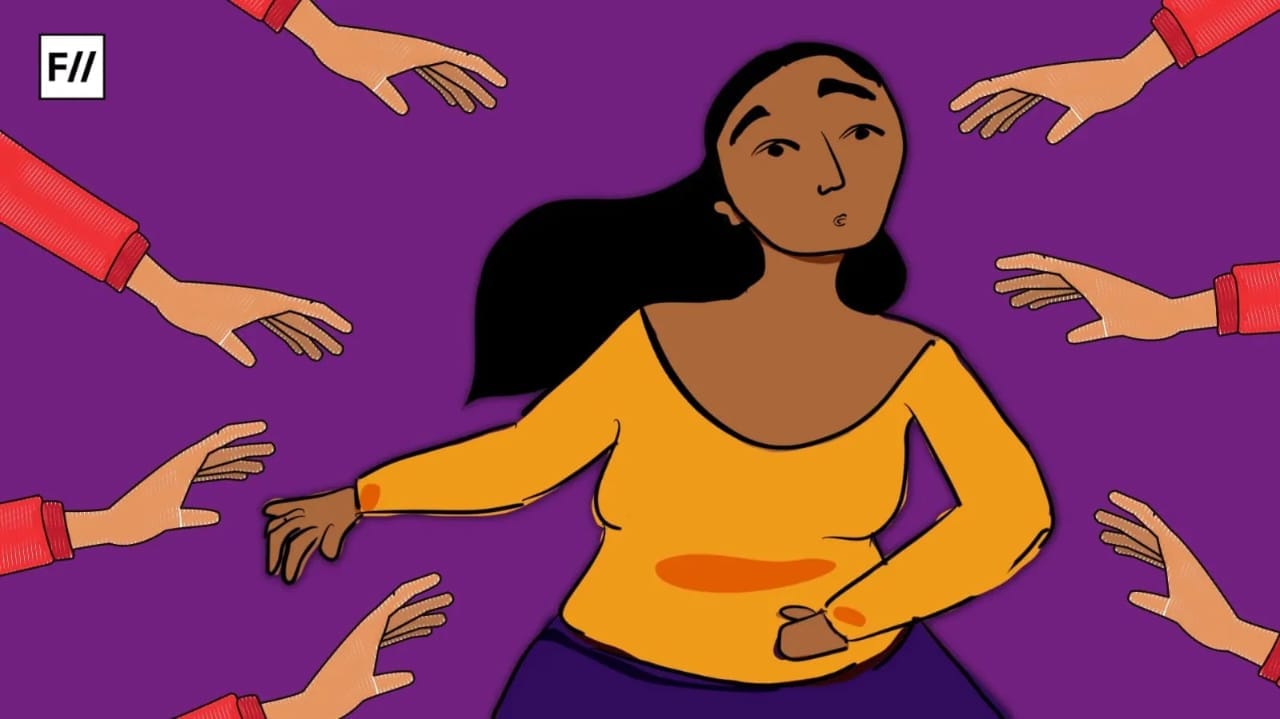‘O, keep me from their worse than killing lust,
And tumble me into some loathsome pit,
Where never man’s eye may behold my body:
Do this, and be a charitable murderer.’
– Titus Andronicus, William Shakespeare
These are the words which the female character Lavinia says in the play Titus Andronicus before she is taken to be raped. She begs for death instead of rape, which to her is worse than death. Amongst various perspectives of the offence of rape, one enduring and internalized perception is that it is worse than death. A woman would rather die than be raped, or her life post-rape is worse than or equivalent to death. This conception cuts across times and cultures and continues to influence the definition of rape and the rape survivor today as well. One example can be found in the way in which the Indian judiciary has described the offence of rape and its impact on the survivor in its judgments. In Shyam Narain v. The State NCT of Delhi (2013) the Hon’ble Supreme Court says,
“She shall always be haunted by the memory replete with heavy crush of disaster constantly echoing the chill air of the past forcing her to a state of nightmarish melancholia. …the victim is an eight year old girl who possibly would be deprived of the dreams of “Spring of Life” and might be psychologically compelled to remain in the “Torment of Winter”.”
Here, the Hon’ble Court has drawn a parallel of the rape survivor’s life with the perspective in focus here— that rape is the end of life for a woman. This way of looking at the offence and the survivor conveys powerful meanings about the offence of rape, as it contributes to making it a completely unique crime in and of itself, at a pedestal higher than death.
The discourse nowadays on rape aims to question this belief. It tries to unearth what makes us define rape as worse than death and why we would rather have a woman dead but not raped. In my article I try to do the same, digging out reasons.
Dr. Jane Monckton Smith, a professor of Criminology at the University of Gloucestershire in her work Relating Rape and Murder: Narratives of Sex, Death and Gender (2010) writes that in cases of homicide the deceased’s family would be relieved that their daughter was killed and not raped. That we prefer women dead instead of raped shows that deep inside we value a woman’s ‘purity’, ‘chastity’ and her ‘honour’ over her life. That is why if she is raped she has lost this invaluable honour which is more important than the fact that she is a living human being with a self.
Some rape survivors also tend to describe the offence in similar ways. One rape survivor of the 1994 genocide in Rwanda described that there is ‘no death worse’ than rape. Catharine MacKinnon, a prominent feminist and lawyer offers an explanation to this by arguing that individuals identify with their sexual selves and it is an important part of their self. Rape violates this aspect of one’s identity in relation to herself and others, often in irreparable ways which make the survivor perceive rape as worse than death.
The ‘shame-honour paradigm’, which is the word used by the Justice J.S. Verma Committee in its report to describe the straitjacket in which the rape survivor is viewed, also influences our perception of rape as worse than death. A close reading of judicial decisions shows that rape is often defined as “a serious blow to her supreme honour” and “unforgettable shame” by many courts. Amongst others, the courts say that no woman would level false charges of rape because no woman would want to lose all prospects of family life, her respect amongst her near ones and face ostracism in the society.
What is significant here is the underlying assumption that if a woman is raped she has lost all prospects of ever having a family, a job, dignity or whatever one agrees can make a decent life. The legal authorities have often fallen for calling rape worse than death. The United Kingdom Home Office released a document called ‘Setting the Boundaries‘ (2000) on reforming the law on sexual offences in which it has called life after rape as “a fate worse than death.” The Apex Court in State of Punjab v. Gurmit Singh (1996) drew the difference between rape and murder like this,
“A murderer destroys the physical body of his victim, a rapist degrades the very soul of the helpless female.”
The above-referred instances exemplify different ways in which rape comes to be viewed as the worst that can happen to a woman. Rape survivors are trapped in a societal conception which says that if they are raped then they have to spend the rest of their lives bearing ostracism and shame with no hope of a stable, respectful life. Rape survivors often go through post-traumatic stress disorder (PTSD), anxiety, fear, depression and feelings of devaluation. Added to this psychological trauma are the stereotypes which further label the survivor as — ‘immoral’, ‘loose’ or having ‘prompted it’ and clamp down on her self-esteem. All these together are potential contributors to a survivor feeling that her life has become ‘worse than death’.
It is not just the law and the courts which view rape as the end of prospects in life. The families and near and dear ones of some rape survivors have expressed having undergone trauma similar to that of the survivors. A paper titled ‘”ripple effects” of sexual assault’ (2007) published by the Australian Institute of Family Studies, describes how families have expressed having felt loss of sense of community, shame, helplessness and devaluation. Hence there is a deep sense of loss of meaning and happiness in life which is experienced by many survivors and their families, which they attribute to the offence of rape.
The age-old patriarchal notions of honour, purity and chastity exacerbate the trauma that rape inflicts on an individual’s psyche. Saying that rape is a “monstrous burial of her dignity in the darkness” and that it deprives the survivor of the “spring of life” works to predict and inadvertently label the kind of life that lies ahead for a rape survivor — devoid of opportunities of growth, companionship, happiness and dignity. It sends the message that there is nothing left in life for a woman after her rape. Moreover, the idea that a meaningful life can be defined in a particular manner is problematic, since it is varied. Limiting the idea of having a life to only job, marriage, education and the like excludes those groups of the society from this discourse who struggle to fulfil some very basic needs in their lives.
That rape is worse than death has been challenged and contradicted in recent times by survivors themselves. Flavia Agnes, in her paper has mentioned that the Shakti Mills rape survivor confided that during the whole incident she wanted to live and not die. Agnes has called it a ‘clear defiance’ of the notion that rape is worse than death. It is noteworthy how Suzette Jordan (deceased), a rape survivor from Kolkata has spoken against the view that rape is the end of life for a woman. In an interview with The Indian Express she says,
“Just because I have been raped, people feel I have no right to live and I certainly have no right to be happy. I feel as if I am being blamed for being alive. But why shouldn’t I enjoy life?”
It is hopeful to see how the discourse is changing towards questioning the empty rationale behind this centuries old belief that labels rape as the end all and be all of an individual. It also questions the entrenched patriarchal notion which views woman as the bearer of ‘honour’ and ‘chastity’, and says that she loses them forever if she is raped and is subjected to a life ‘worse than death’. Rape is a serious violation of an individual’s bodily integrity and sexual autonomy. It wounds the identity of an individual as a human being who has every right to privacy of her/his body.
Sadly, the patriarchal definitions of ‘honour’ and ‘purity’ have become so concrete that the society fails to appreciate the life of a woman as more than how it has been defined by these words. But a woman’s dignity and what she is capable of doing with her life do not come to an end because of rape. She has every right to live a life full of prospects for happiness, respect and well-being. She has the right to demand justice against her offenders. No individual, law or the society has the right to declare a rape survivor as ‘dead’ when she is a whole human being who has the right to move on in her life from a traumatic experience.
Featured Image Credit: Tarquinius and Lucretia (1571), attributed to Titian, via Wikimedia commons.
About the author(s)
Madhulka is a third-year law student. Her areas of interest include laws relating to women, human rights and history. She likes to watch Marvel movies and period cinema in her free time.





very well articulated. i wish such patriarchal thinking goes away soon.